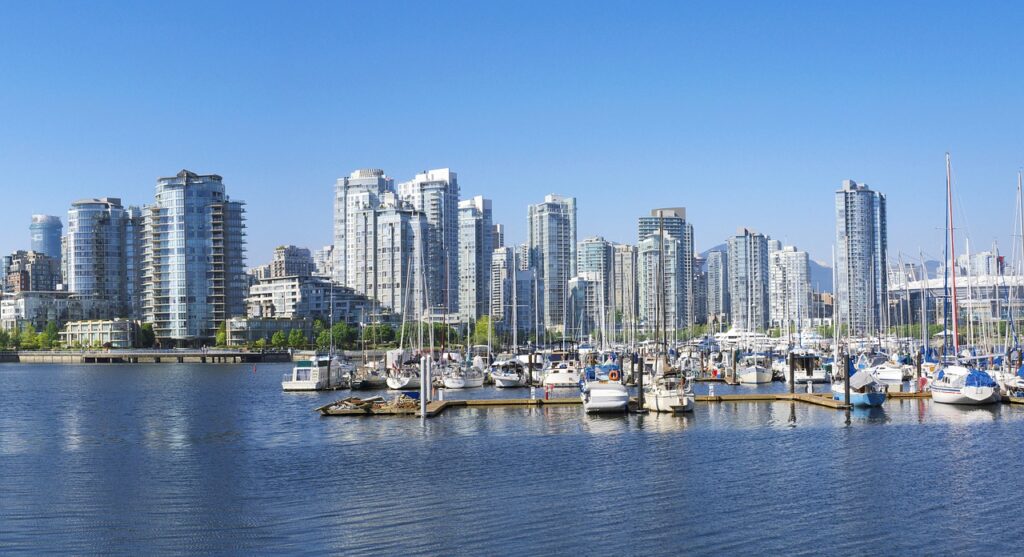
What will the Vancouver real estate market look like in January 2025?
According to the latest data from THE RENNIE REVIEW, December 2024 was the third consecutive month of year-over-year sales growth in the Vancouver area.
They expect total revenue in 2024 to outpace 2023, thanks to a relatively strong performance, and to be on a positive trajectory heading into 2025.
Several other indicators suggest a cautiously optimistic outlook:
- New condo launches on the rise: We are seeing an increase in the number of new condo launches in Metro Vancouver and the Fraser Valley.
For example, MLA Canada has reported a total of 23 new sales since the beginning of 2024, with three projects expected in January, six in February, and 14 in March, totaling approximately 2,150 units. - Market Stability: According to a report by Cushman & Wakefield, the Metro Vancouver market was stable in Q4 2024, with no sharp fluctuations.
This stability is a positive sign for the pre-sale sector and suggests a balanced environment for both buyers and developers. - Improving U ptake: According to MLA Canada’s 2024 Intel Report, greater macroeconomic stability and pent-up demand are expected to drive
unit uptake, pricing, and consumer sentiment in the second half of 2024 and 2025.
Along with the positive signs, there are also uncertainties in British Columbia’s real estate sector.
Factors such as political and financial changes, interest rate fluctuations, and changes in housing policy are expected to influence market dynamics.
The state is expected to continue its efforts to increase housing supply and address housing affordability issues.
This includes policies such as providing funding to cover a portion of a first home purchase or introducing a home equity tax.
What are the factors affecting the Vancouver pre-sale market?
Provincial policies to increase housing supply:
– Governments are continuing their efforts to address housing shortages through higher-density development projects and transit-oriented development, which can have a positive impact on the pre-sale market.
In addition, a focus on the “missing middle” and incentives for municipalities that support multifamily housing development can stimulate demand for pre-sales in this segment of the market.
Supporting first-time homebuyers:
– Policies such as subsidies or funding to reduce barriers for first-time homebuyers can increase their participation in the presale market.
This demographic tends to favor pre-sales because it gives them more time to plan their finances.
Improving home affordability through policy:
– Policies such as a “home stamp duty” can discourage speculative investment in existing homes and drive real buyers and investors to the pre-sale market, which is considered less speculative.
Population Growth and Immigration:
– British Columbia (B.C.) is a preferred destination for immigrants, many of whom are choosing urban centers like Vancouver.
The steady influx of skilled workers and families creates a steady demand, especially for condominium projects.
Stabilizing interest rates:
– Some forecasts suggest that interest rates will stabilize or fall from mid-2025 onwards, which could reduce the cost of borrowing, making sales more attractive.
This is especially beneficial for those looking to secure funds for future purchases.
Investor appeal:
– Pre-sales are still popular with investors due to their flexible payment structure and potential for value appreciation over time.
A balanced market and well-planned development projects could be the factors driving demand for pre-sales in this segment.
Improve infrastructure and urban development:
– Infrastructure development, such as new transit lines or commercial hubs, often leads to increased pre-sale activity in nearby neighborhoods.
Market shift to timber frame developments:
– The strong performance of timber frame pre-construction homes in recent trends shows a growing preference for more affordable housing options.
This segment is likely to offer a realistic alternative for first-time homebuyers and investors alike.
Sustainability and innovation in housing:
– Developers who offer sustainable, energy-efficient, and technologically advanced housing options tend to attract environmentally conscious buyers.
Projects that emphasize green building practices are differentiated and can perform well in the sales market.
Foreign investment trends:
– Positive changes in foreign investment policy or the relative weakness of the Canadian dollar can make residential real estate more attractive to international buyers looking for long-term investments.
Summary:
Vancouver’s residential market is adapting to increased inventory and changing demand patterns, but it remains an important component of the region’s real estate.
Stakeholders will need to keep a close eye on policy changes and market trends to effectively navigate the uncertainties expected in 2025.
